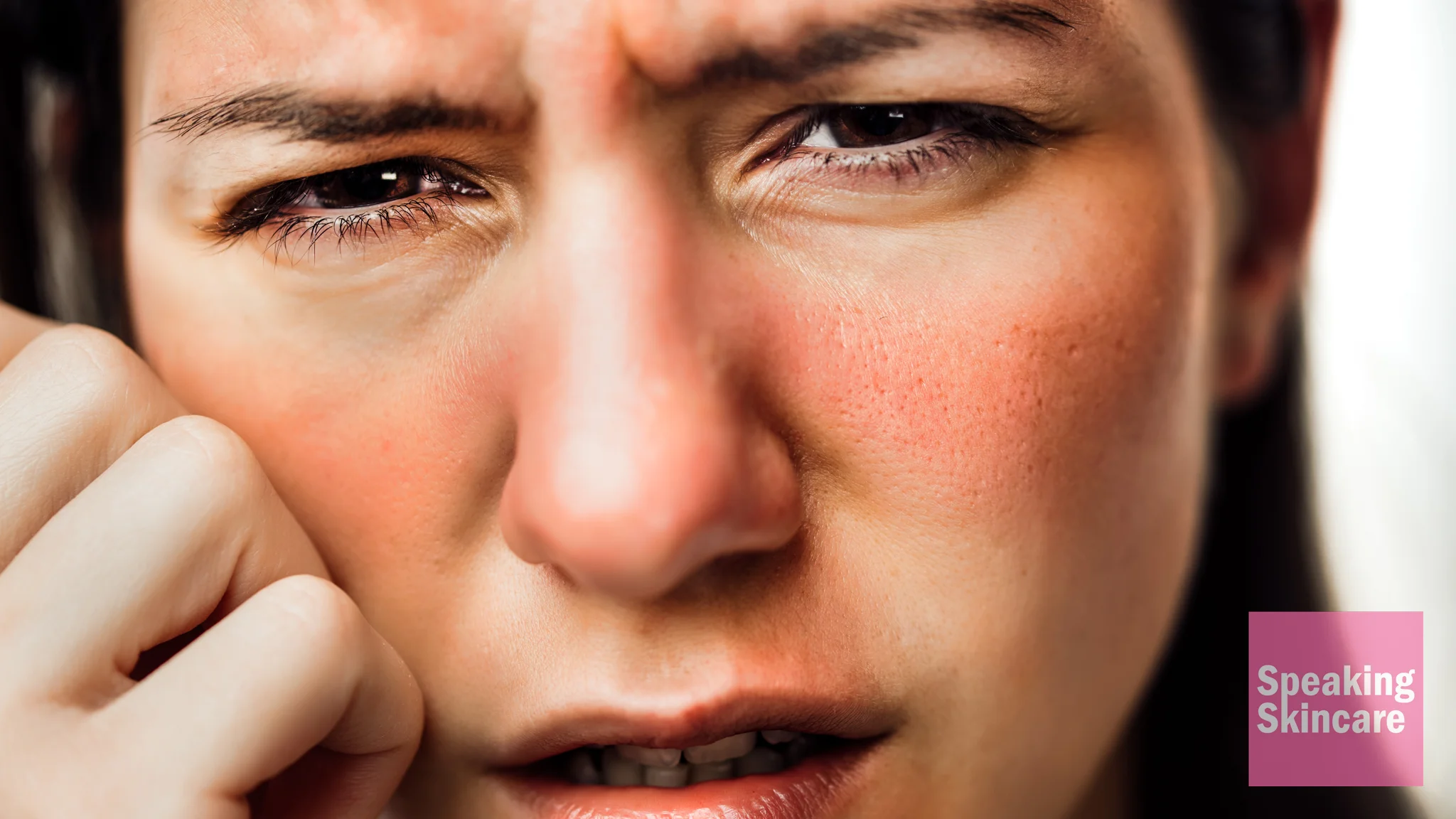Life gets tough sometimes, and when it does, having a good cry can help. But some people are reporting a strange sensation when they shed a few tears, namely in the form of stinging or burning on their skin.
Has this happened to you? Don’t worry, your tears haven’t suddenly become toxic, but it may be a sign of problematic skin. Let’s take a closer look.
What are tears made of?
Life can be a cruel joker. Not only are you upset enough to cry, but even your tears are kicking you while you’re down!
Tears are mostly made from water, but within that water lies a host of other building blocks. Not surprisingly, tears contain sodium, which is what gives them their salty taste. Additionally, they contain potassium, chloride, and bicarbonate, which work together to create 3 different layers within the tears. Firstly, there is the mucous layer, which keeps the tear connected to the eye. The thick aqueous layer, which acts to keep away bacteria as well as hydrate the eye. And finally, the oily layer, which keeps the other layers in place while ensuring the surface of the tear itself is smooth.
Okay, that’s all very interesting, but what does this have to do with tears burning your skin? Good question. The answer to that revolves around the current condition of the skin.
Why your tears are burning your face
If you suffer from naturally dry skin, the likelihood of your tears causing a burning or stinging sensation on your face is generally higher. This is because the sodium within the tear interacts with vulnerable and possibly damaged skin caused by dryness and causes irritation. This can be quite uncomfortable, and you could be forgiven for mistaking your tears for acid, but there’s no need to worry about it developing into something more serious.
Similarly, those with sensitive skin can also feel parallel sensations. Of course, skin sensitivity comes in many shapes and forms and impacts everyone differently, but it’s fair to say that the salty makeup of tears can certainly leave an impression.
Finally, salty water actually has a drying effect of its own. This means if you shed tears onto already dry skin, the sodium content will likely make it even dryer. If you cry a lot (we hope you’re okay) this can become a bit of a never-ending circle of frustration.
How to stop tears from burning your skin
Thankfully, the solution to this problem is pretty simple. In order to reduce the chances of your tears stimulating a burning or stinging sensation within the skin, it’s important to keep the skin as healthy as possible.
Treating dry skin with moisturizing products like creams and serums is a good way of softening the skin to be more balanced. The more moisture there is in the skin, the less problematic tears will be. Dry skin can develop into serious irritation and even acne if left untreated, so be sure to regularly hydrate, moisturize, and clean the skin to ensure pores are able to breathe. We’d suggest moisturizing a couple of times a day to keep dryness in check.
Secondly, making sure your eyes are kept in good health is also beneficial. Not all tears come from crying, after all. Whether the wind has dried out your eyes, or you’re chopping onions, tears can pop out for a number of reasons. Drink plenty of water to keep yourself and your eyes hydrated. If you need an extra helping hand, keep eye drops within reach for those particularly stressful moments. Fewer tears = less irritation.
Conclusion
If you have dry or sensitive skin, the sodium within tears may irritate the skin. Nobody wants to feel burning or stinging, so make sure to keep on top of your general skin and eye health.
